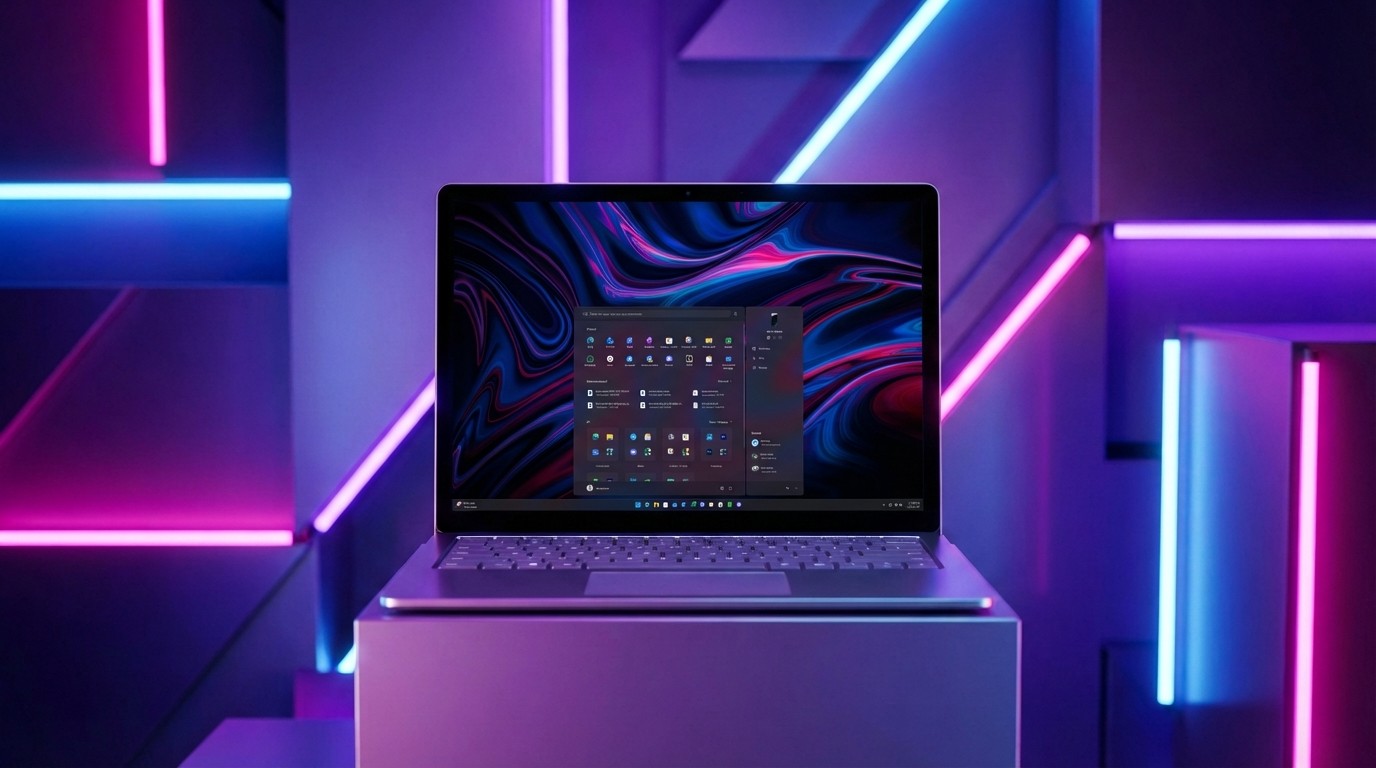How to pick the right NAS for a Plex media server
Here are our NAS recommendations for your home server.
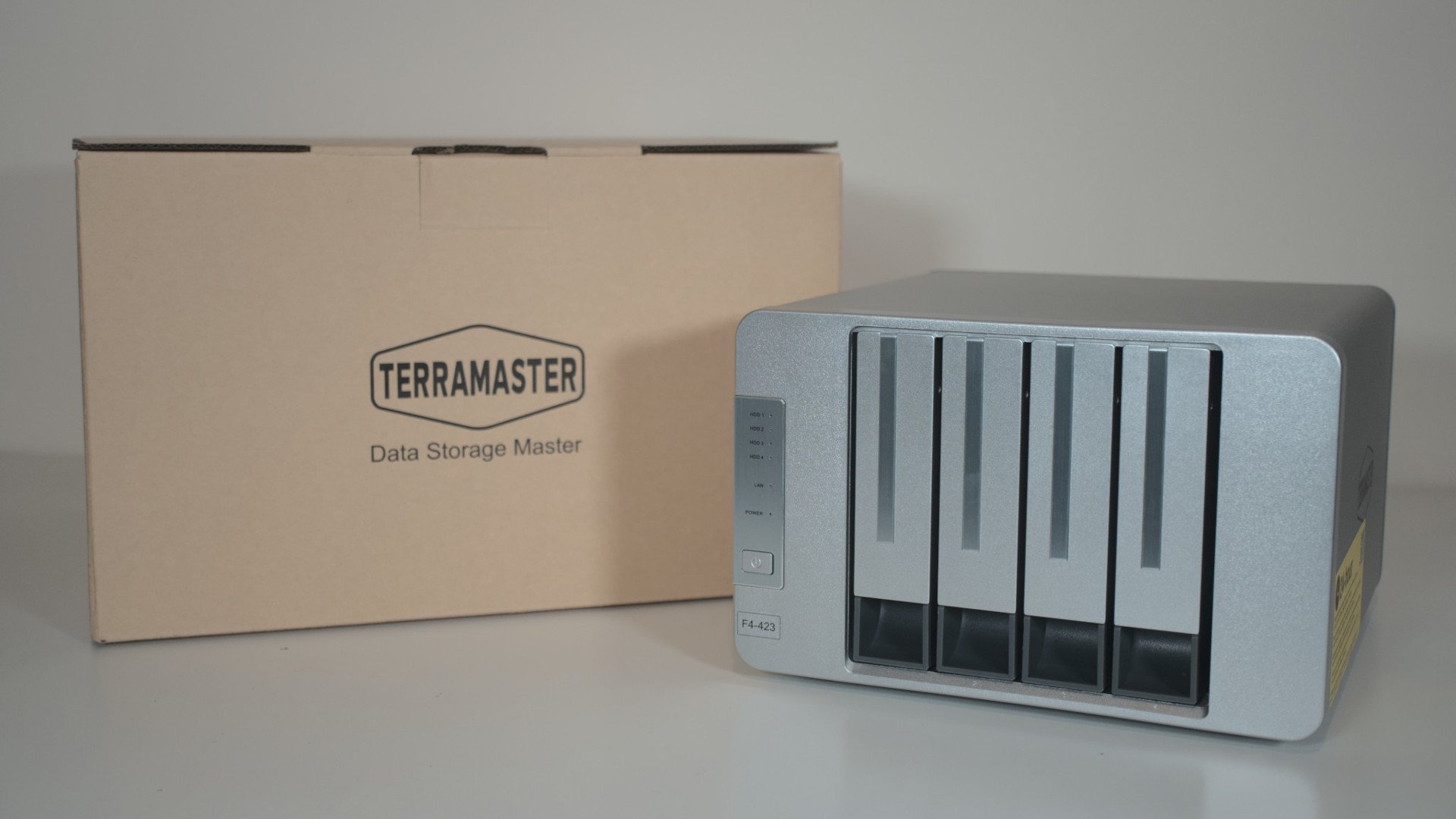
All the latest news, reviews, and guides for Windows and Xbox diehards.
You are now subscribed
Your newsletter sign-up was successful
Plex is a popular choice for those looking to set up their own media server at home. Plex Media Server allows you to configure a single location to host and stream all your music, movies, shows, and more. Using a NAS enclosure to run this service is a great way to save money if you already own a vast collection of purchased media.
Plex requires a solid server to get the most out of the service, though a capable enclosure will suffice. It's possible to build your own, which is the desired method for those with the know-how. On the other hand, what if you simply wish to purchase one of the best NAS for Plex, plug everything in, and get going? There are some solutions available from various companies, but not all are suitable for Plex, which can be fairly resource-intensive.
Plex recommends several NAS devices, including the following brands:
- ASUSTOR
- Netgear
- QNAP
- Seagate
- Synology
- TerraMaster
- Western Digital
One thing worth noting before you part with hard-earned cash is, the less you fork out for a NAS, the more likely the system will not be able to effectively transcode and stream 4K content to other devices. What is transcoding? It's the process of converting media from one file type to another on the fly.
Should a TV, tablet, or phone require some assistance from your server for playback, and it's not quite up to the task of handling the intensive request, things may not go smoothly. The server running Plex would need to transcode the file (which requires considerable computing power) and stream it across the network.
What you need to transcode 4K media on Plex
So how does one guarantee high performance for transcoding with Plex? Take a good look at the CPU used by companies in the NAS devices you're considering. There's a fantastic NAS guide for Plex, which shows just how well each supported NAS system will perform. Does it support 720p, 1080p, or 4K transcoding? You'll be able to easily check using the following resource.
Not all NAS enclosures and processors will run Plex Media Server the same. More affordable NAS models with less powerful processors will fall behind more expensive NAS servers with beefier internals for 4K streaming and multiple connections being made simultaneously. This spreadsheet will show you just how capable each enclosure is for NAS media transcoding.
Generally speaking, you'll want to go with an Intel-powered NAS for optimal performance, but a high-end ARM processor can do well if you don't have the spare funds to part with for a more expensive solution. For storage and other features, you'll need to make sure the NAS has everything you require, and this will differ on a case-by-case basis.
4K transcoding will not be possible with anything less than a multi-core Intel Celeron processor, which itself can struggle to keep up with larger files, especially when more than one Plex account is streaming media simultaneously. If you want to handle 4K transcoding, it's better to build your own NAS or put aside thousands to fund a high-end pre-built NAS server enclosure.
Transcoding occurs when the NAS cannot stream a movie file to a device because it doesn't support the format, which can happen more frequently with smart TVs. The server would then need to transcode the movie into a format accepted by the recipient device. So if the device you need to watch a 4K movie on happily runs the formats you have stored on the NAS, you're golden — it's only when you need to transcode that you would need a powerful CPU.
Our NAS for Plex recommendations
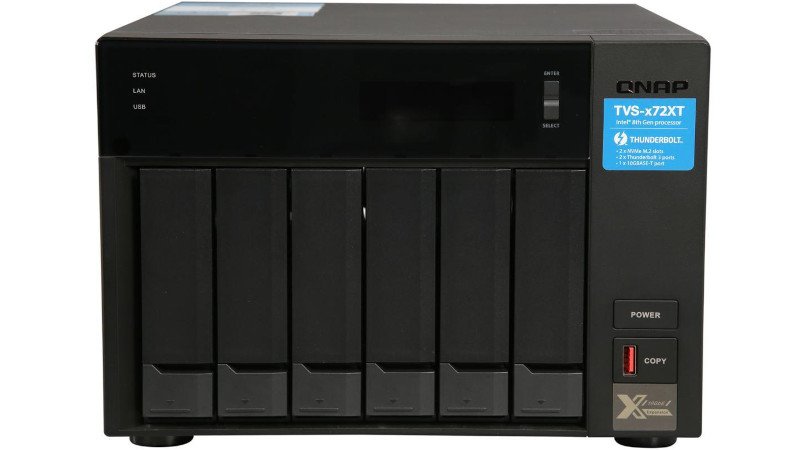
QNAP TVS-672XT
Specifications
Reasons to buy
Reasons to avoid
Bottom line: The QNAP TVS-672N-i3 was designed with media consumption in mind. You can tell this thanks to the HDMI ports on the rear of the enclosure. Not only that, but QNAP opted to go with a powerful Intel Core i3-8100T processor, which is more than capable of handling 4K transcoding.
This is an expensive option but well worth the investment for those serious about setting up a capable NAS machine that will handle various applications without issue. There's a ton of functionality, with support for 4K playback and transcoding, and even on-the-fly editing.
There are also two 2.5Gb Ethernet ports for faster speeds (backed by a supported network), full support for VMware, Citrix, and Microsoft Hyper-V virtualization platforms. When it comes to security, QNAP hasn't cut corners and offers full NAS encryption, as well as an antivirus.
An Intel Core-i3 processor is joined by 8GB RAM (upgradable to 32GB) and HDMI out with XBMC. Overall, this unit is not only good at being a Plex server but is also a killer NAS unit with a total of six bays.
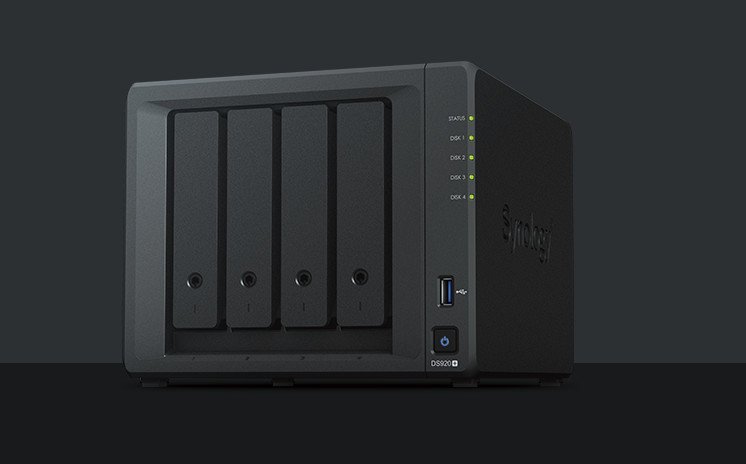
Synology DiskStation DS920+
Specifications
Reasons to buy
Reasons to avoid
Bottom line: The best value NAS enclosure for Plex goes to the DS920 from Synology. It's got four drive bays for plenty of storage capacity, a rather reliable Intel Celeron processor, and plenty of features like upgradable RAM and dual 1Gb LAN ports with link aggregation support.
You don't have to fork out countless hundreds for a 4K-capable NAS. The DS920+ is a reliable option, sporting an Intel Celeron J4025 CPU, 2GB DDR4 RAM (supports up to 6GB), and two 1Gb Ethernet connections. This processor will even handle 4K transcoding without issue, allowing you to build the foundations of a great home media server.
When it comes to Plex and enjoying some content, the DS920+ is capable of handling up to 4K H.264, as well as outputting it to a capable display, though we'd recommend only keeping 1080p in mind for transcoding. Just make sure the recipient device supports the same format as the 4K movie, and you'll be fine.
And because it's the DS920, you could expand the four included drive bays up to nine with an expansion unit, something you cannot do with the DS220+ or DS420+.
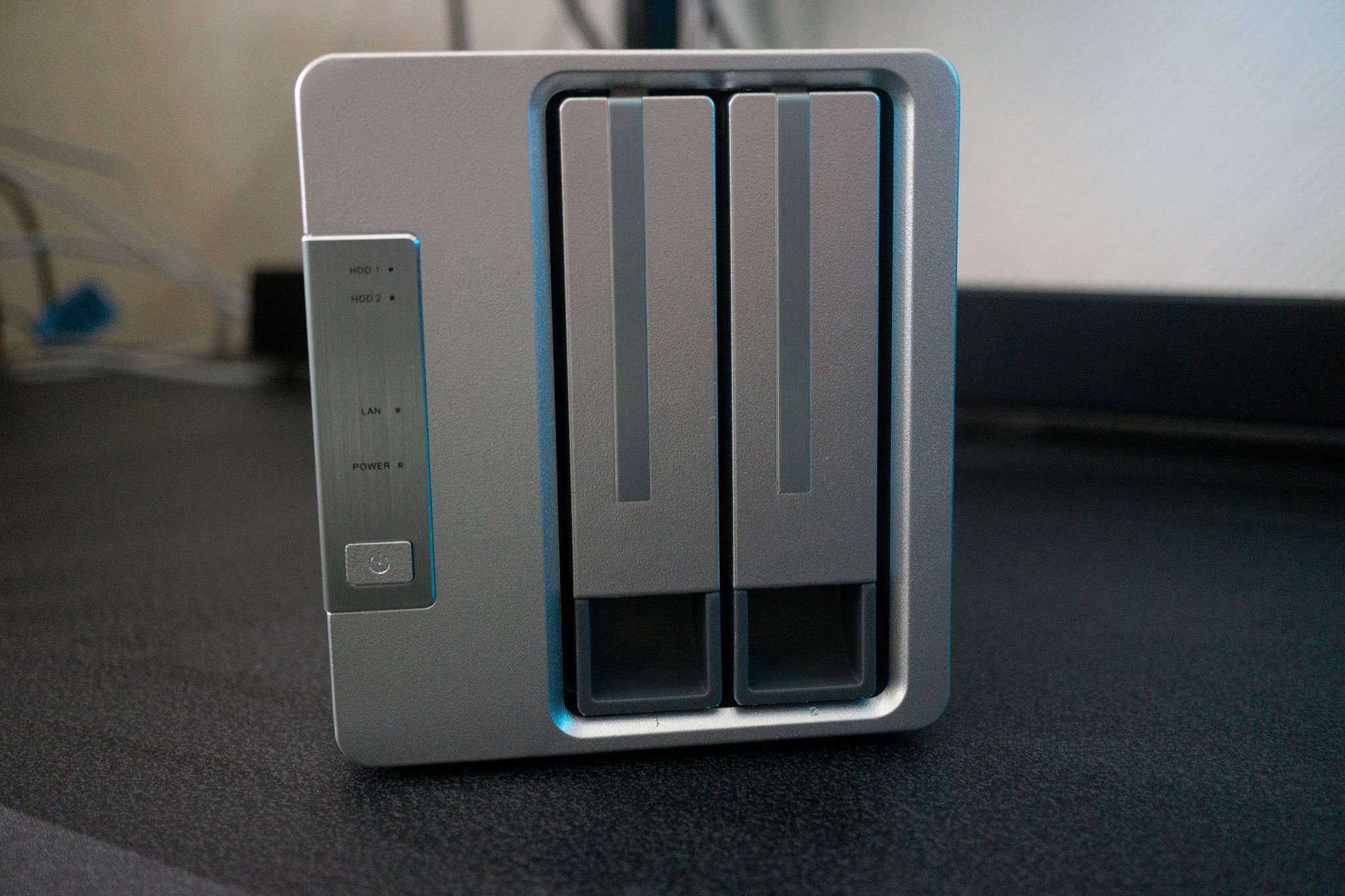
TerraMaster F2-221
Specifications
Reasons to buy
Reasons to avoid
Bottom line: Two bays is what you'll find in more affordable NAS enclosures like the TerraMaster F2-221. It's not the most capable but does come rocking an Intel Celeron J3355 processor. This little server can power through 4K movies, so long as you don't need to transcode anything.
Powered by the Intel Celeron J3355 processor, the TerraMaster F2-221 may be an affordable listing for NAS solutions, but don't let that excellent price tag fool you into thinking it's not a capable unit. We're talking 4K Ultra HD video playback and H.265 (HEVC) support. This allows for quality content to be pumped out to an accompanying TV set.
What sets the F2-221 aside is just how easy it is to set up and configure. If you need to install Plex, copy movies across, connect to an Xbox Series X/S console, and other in-home devices, it takes no time at all. Whether you want to throw music, video, or photos at the TerraMaster unit, it'll handle everything without issue.
While this NAS could transcode 4K content, the two drive bays means you'll have limited space to store such massive files.
All the latest news, reviews, and guides for Windows and Xbox diehards.

Rich Edmonds was formerly a Senior Editor of PC hardware at Windows Central, covering everything related to PC components and NAS. He's been involved in technology for more than a decade and knows a thing or two about the magic inside a PC chassis. You can follow him on Twitter at @RichEdmonds.
